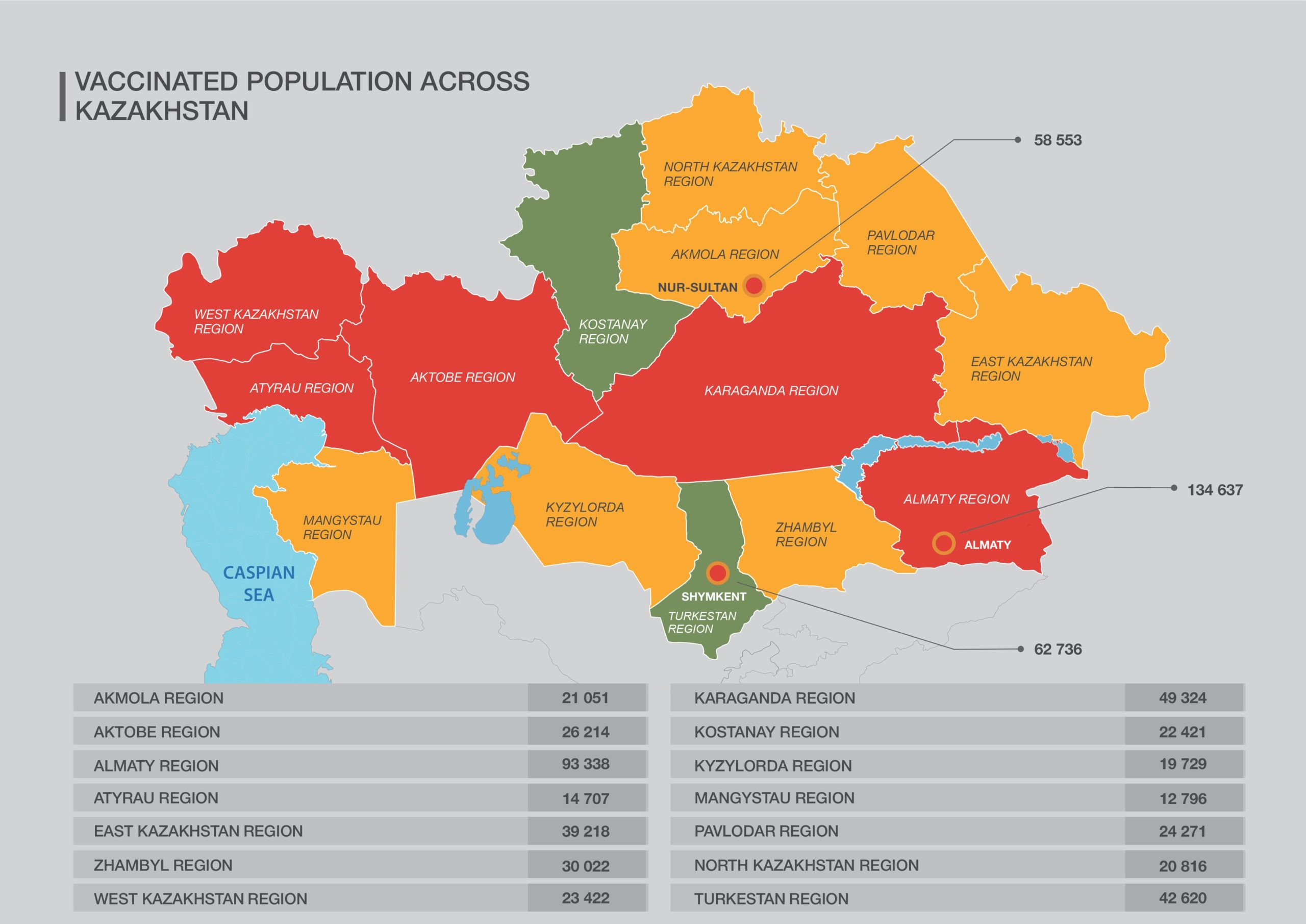NUR-SULTAN – As mass vaccination continues in Kazakhstan, 695,875 people, or 3.7 percent of the country’s nearly 19 million population, have received their first dose of the vaccine and 118,801 people, or 0.6 percent of the total population, have completed their vaccination with a second dose as of April 19, according to the Kazakh Ministry of Healthcare.

The leading regions with the vaccinated population include Almaty (134,637 of the first-dose vaccinated), Almaty Region (93,338), Shymkent (62,736) and Nur-Sultan (58,553).
Slightly slower rates of vaccination are observed in Turkestan (42,620), East Kazakhstan (39,218) and Zhambyl (30,022) regions.
Areas where the number of vaccinated falls below the mark of 30,000 people, include Aktobe (26,214), Pavlodar (24,271), West Kazakhstan (23,422), Kostanai (22,421), Akmola (21,051) and North Kazakhstan (20,816) regions.
So far, the smallest populations of the first-dose vaccinated residents can be found in Kyzylorda (19,729), Atyrau (14,707) and Mangystau (12,796) regions.
The epidemiological situation in the country, as of April 19, has shifted slightly over the weekend, as the Akmola region has moved from the red zone to the yellow. Nur-Sultan, Almaty, Shymkent and Atyrau, as well as the Aktobe, Almaty, West Kazakhstan and Karaganda regions continue to be part of the red zone.
The vaccination against the coronavirus started Feb. 1 in Kazakhstan. The nation currently uses Russia’s Sputnik V vaccine, which is manufactured at the Karaganda pharmaceutical plant. It is a two-dose vaccine with the second shot scheduled 21 days after the first one.
For the first two months, only doctors, teachers and security officials were eligible for the vaccine. In April, mass vaccination became available to all citizens.
During the Vaccine for All special meeting hosted by the UN Economic and Social Council (ECOSOC), Kazakh Minister of Healthcare Alexey Tsoy commended the work of the Secretary General António Guterres and the World Health Organization.
“As the world is in the midst of the fight against COVID-19, the greatest burden of this pandemic is its negative effect on all countries, especially those in special circumstances, including landlocked developing countries. At the same time, inequalities in access to COVID-19 vaccines further widen the gap between rich and poor countries,” said Tsoy.
Last week, the Kazakh Biosafety Research Institute presented the QazVac vaccine against the coronavirus developed by Kazakh scientists over the last year. The institute intends to finish the third phase of clinical trials by July 9, 2021.
